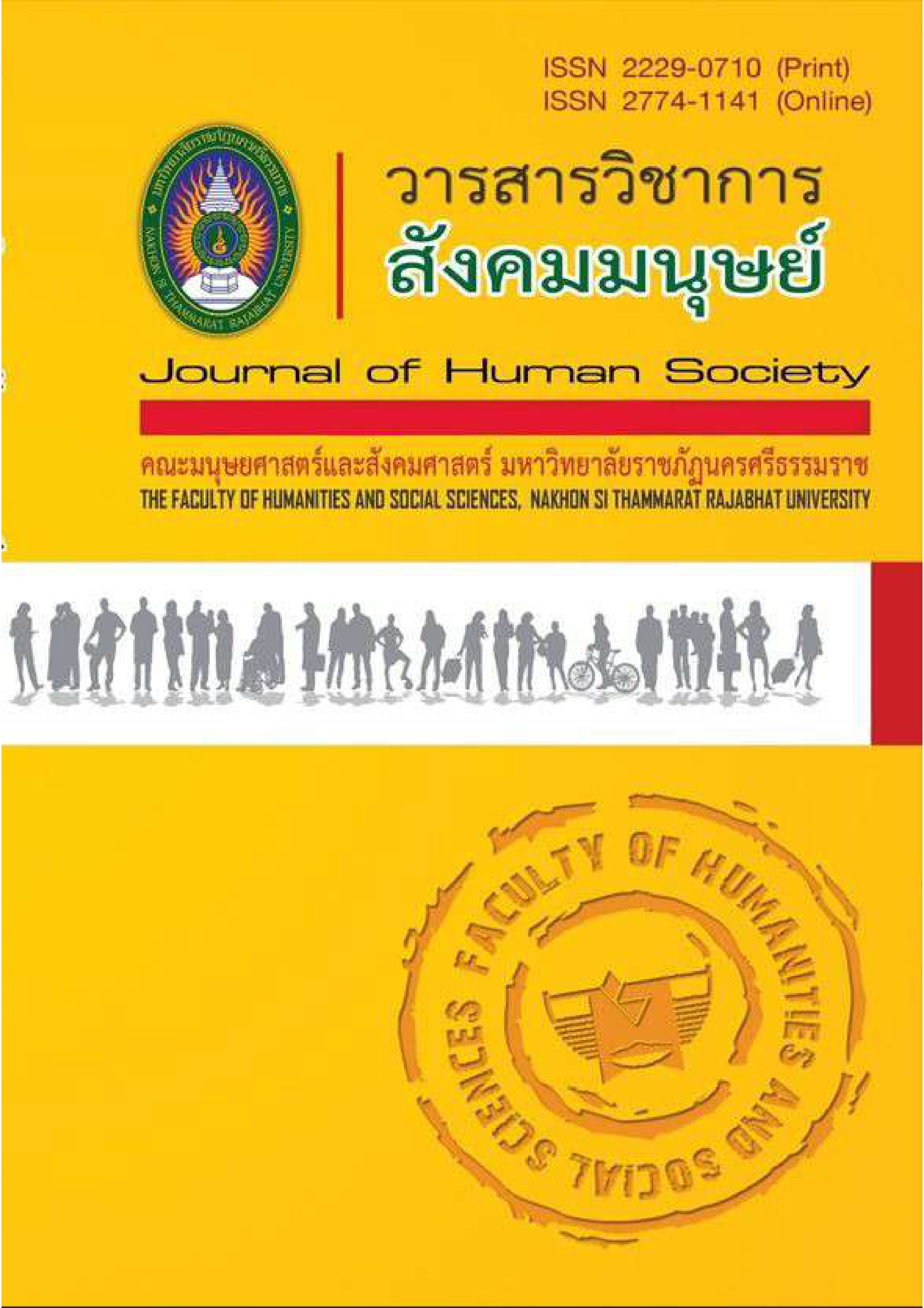Guidelines for adjudicating administrative cases regarding house rental fees for civil servants
Main Article Content
Abstract
The purpose of this academic article is to present the characteristics of administrative disputes regarding civil servants' housing rental rights. This is due to the consideration of issuing an administrative order by a person with legal authority who issued an order illegally. From the judgment of the Supreme Administrative Court, it is clear that the issuance of administrative orders by those with authority to approve or disapprove government officials who request to exercise their right to withdraw house rent is often unlawful. This is because interpreting the law to apply it in each case must take into account the relevant laws, spirit of law principle of equality, the considering issuing administrative orders so that the results of the law are in accordance with the wishes of the law maker. The judgment of the case is therefore an important matter for those in power. It is a body of knowledge used in considering the issuance of administrative orders without affecting the rights or being unfair to those who have rights and those who request to use the right to rent government officials' houses. Steps in the process or considerations: 1. Check the right to rent a civil servant's house upon receipt of the request by proving that it is an order to travel to an office in another area and does not fall under the exemption. 2. Check the application for the right to withdraw rent for government housing. In both cases of rental Borrowing money for leasing, purchasing, and building a home by interpreting the law and applying it to the facts of each case.
Article Details

This work is licensed under a Creative Commons Attribution-NonCommercial-NoDerivatives 4.0 International License.
บทความที่ได้รับการตีพิมพ์จะเป็นลิขสิทธิ์ของวารสารวิชาการสังคมมนุษย์
References
ตระหง่าน เกียรติศิริโรจน์. (2566). คัมภีร์คดีปกครอง. กรุงเทพฯ: พิมพ์อักษร.
ทวียศ ศรีเกต. (2558). หลักทางวิชาการเกี่ยวกับการใช้ และการตีความกฎหมาย. บทความใช้เพื่อการนำออกอากาศทางสถานีวิทยุกระจายเสียงรัฐสภา รายการเจตนารมณ์กฎหมาย สำนักงานเลขาธิการสภาผู้แทนราษฎร วันออกอากาศ ๑๓ พฤษภาคม พ.ศ. ๒๕๕๘.
บวรศักดิ์ อุวรรณโณ. (2538). กฎหมายมหาชน เล่ม 3 : ที่มาและนิติวิธี. กรุงเทพฯ: นิติธรรม.
________. (2542). การตีความกฎหมาย : ตัวอักษรหรือเจตนารมณ์. วารสารศาลรัฐธรรมนูญ, ปีที่ 1 (เล่มที่ 2), หน้า 31-39.
ภูริชญา วัตนรุ่ง. (2567). หลักกฎหมายมหาชน. ค้นเมื่อ กุมภาพันธ์ 2, 2567, จาก http://old-book.ru.ac.th/e-book/l/LW101(50)/LW101-7.pdf
ฤทัย หงส์สิริ. (2564). ศาลปกครองและการดำเนินคดีในศาลปกครอง. กรุงเทพฯ: สำนักอบรมศึกษากฎหมายแห่งเนติบัณฑิตยสภา.
วรเจตน์ ภาคีรัตน์. (2557) การตีความกฎหมาย. กรุงเทพฯ: สำนักพิมพ์วิญญูชน.
ศาลปกครอง. (2553). แนวคำวินิจฉัยของศาลปกครอง (พ.ศ. 2544 – 2552). กรุงเทพฯ: สำนักงานศาลปกครอง.
________. (2554). แนวคำวินิจฉัยของศาลปกครองเล่ม 2. กรุงเทพฯ: สำนักงานศาลปกครอง.
________. (2555). แนวคำวินิจฉัยของศาลปกครองเล่ม 3. กรุงเทพฯ: สำนักงานศาลปกครอง.
________. (2556). แนวคำวินิจฉัยของศาลปกครองเล่ม 4. กรุงเทพฯ: สำนักงานศาลปกครอง.
________. (2559). แนวคำวินิจฉัยของศาลปกครองเล่ม 5. กรุงเทพฯ: สำนักงานศาลปกครอง.
________. (2560). แนวคำวินิจฉัยของศาลปกครองเล่ม 6. กรุงเทพฯ: สำนักงานศาลปกครอง.
________. (2561). แนวคำวินิจฉัยของศาลปกครองเล่ม 7. กรุงเทพฯ: สำนักงานศาลปกครอง.
________. (2562). แนวคำวินิจฉัยของศาลปกครองเล่ม 8. กรุงเทพฯ: สำนักงานศาลปกครอง.
________. (2563). แนวคำวินิจฉัยของศาลปกครองเล่ม 9. กรุงเทพฯ: สำนักงานศาลปกครอง.
________. (2564). แนวคำวินิจฉัยของศาลปกครองเล่ม 10. กรุงเทพฯ: สำนักงานศาลปกครอง.
________. (2565). แนวคำวินิจฉัยของศาลปกครองเล่ม 11. กรุงเทพฯ: สำนักงานศาลปกครอง.
________. (2566). แนวคำวินิจฉัยของศาลปกครองเล่ม 12. กรุงเทพฯ: สำนักงานศาลปกครอง.
สมยศ เชื้อไทย. (2560). แนวคิดและหลักการตีความกฎหมาย. กรุงเทพฯ: วิญญูชน.
สุพจน์ กู้มานะชัย. (2558). หลักการตีความทางกฎหมายไทย. กรุงเทพฯ: นิติธรรม.
หยุด แสงอุทัย. (2565). ความรู้เบื้องต้นเกี่ยวกับกฎหมายทั่วไป. พิมพ์ครั้งที่ 22. กรุงเทพฯ: สำนักพิมพ์มหาวิทยาลัยธรรมศาสตร์.


